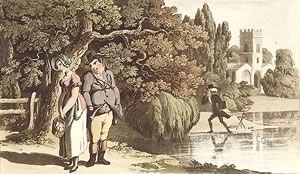A multi-generational bioprogram? Derek Bickerton objects
Yesterday, I described Olga Feher's demonstration that species-typical songs emerge, over several generations, in an isolated colony of zebra finches founded by birds raised in isolation ("Creole birdsong", 5/9/1008). I compared this pattern to Derek Bickerton's "bioprogram" hypothesis, first put forward in his 1981 book Roots of Language, and discussed again in his 2008 book Bastard Tongues ("A Trail-Blazing Linguist Finds Clues to Our Common Humanity in the World's Lowliest Languages"). As the Wikipedia article on the "language bioprogram hypothesis" explains, Derek's idea is that
when the linguistic exposure of children in a community consists solely of a highly unstructured pidgin[,] these children use their innate language capacity to transform the pidgin, which characteristically has high syntactic variability, into a language with a highly structured grammar.
I also mentioned some of the subsequent debate over the bioprogram theory of creolization, quoting from an encyclopedia article by John Rickford and Barbara Grimes. Some of this debate has focused on whether the process of regularization in creole languages is complete in the first generation of native learners, or takes several generations. I observed that Bickerton's general idea ought to be consistent with a multi-generational emergence of a cognitive phenotype, where the species-typical pattern results from the accumulation of learning biases over several iterations.
However, some of Bickerton's critics have seen multi-generational creolization as evidence against his hypothesis. And to my surprise, it seems that he agrees with them. In an interesting comment on my post, he wrote:
Mark, you say that "Where social learning is involved, perhaps it's normal for the phenotype to emerge over multiple generations." And you may well be right, since social learning has nothing to do with creolization. How can you "socially learn" something for which you have no model, which didn't exist until you made it?
Read the rest of this entry »
